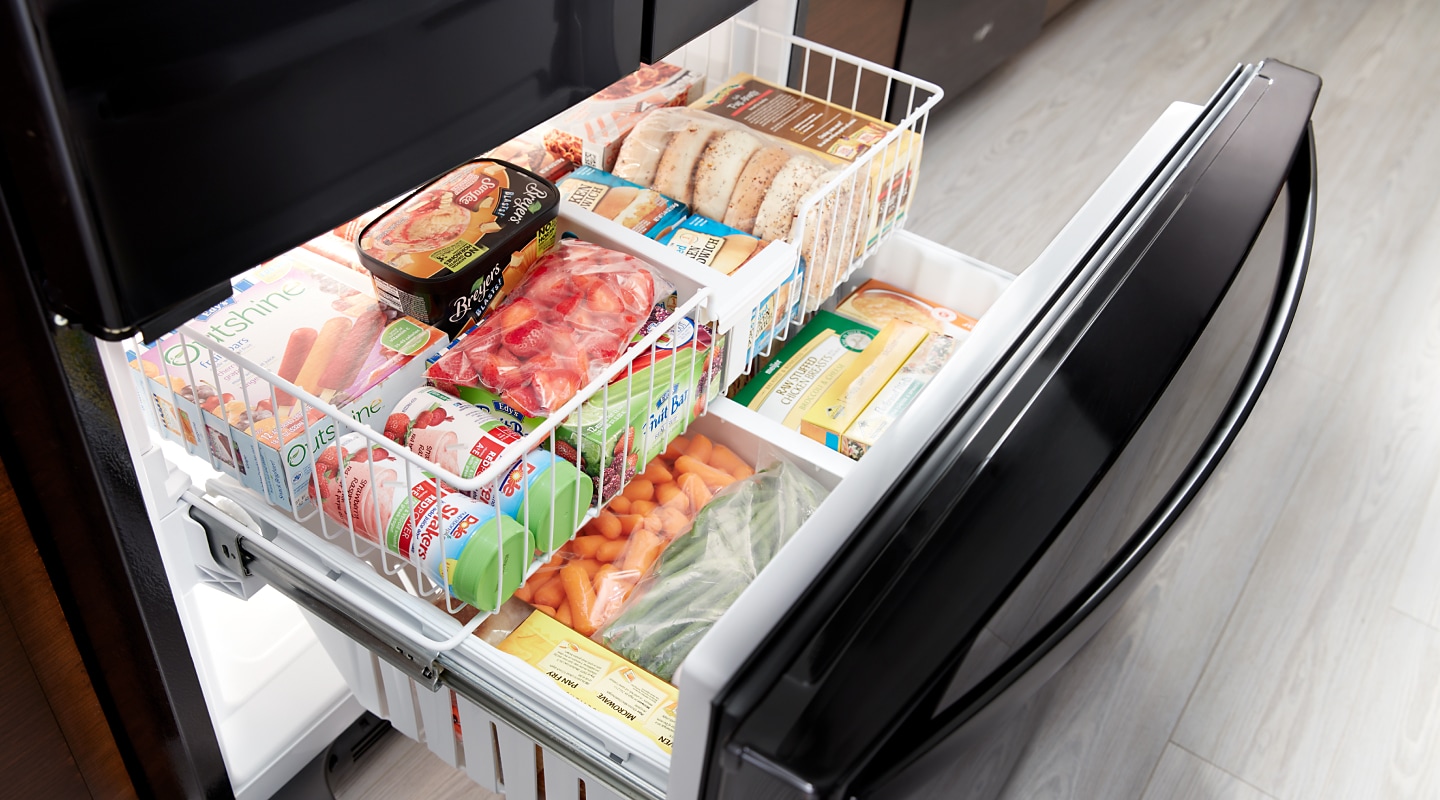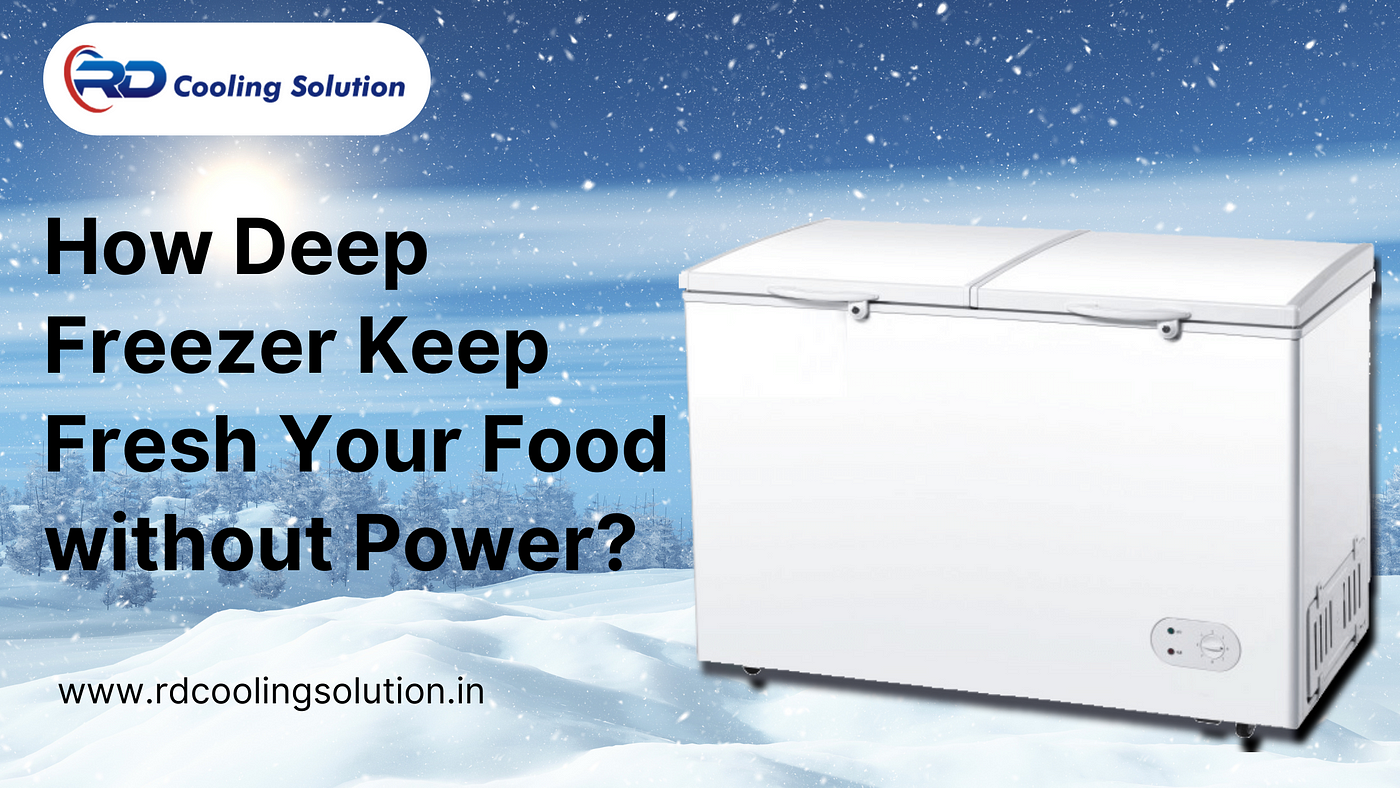Yes, food lasts longer in a deep freezer due to the lower temperature, which slows down the growth of bacteria and enzymes. This extended shelf life helps to maintain the quality and freshness of the food for a longer period of time, preserving its nutritional value and flavor.
Proper food storage is essential for preventing spoilage and food waste. Freezing food at a temperature of 0 degrees Fahrenheit (-18 degrees Celsius) or lower can significantly extend its shelf life compared to refrigeration. This is because the low temperature slows down the enzymatic and microbial activity that causes food to spoil.
By understanding the benefits of deep freezing, individuals can effectively preserve various types of food and minimize food waste.
Introduction To Deep Freezing
Deep freezing is a method of food preservation that involves lowering the temperature of food to extremely low levels, typically below -18 degrees Celsius. This process helps to extend the shelf life of food by slowing down the growth of bacteria and enzymes that cause spoilage. Unlike regular freezers, deep freezers are specifically designed to reach and maintain these ultra-low temperatures.
The Concept Of Deep Freezing
Deep freezing works by rapidly freezing the food, which forms smaller ice crystals and prevents damage to the cell structure of the food. This helps to retain the quality, texture, and flavor of the food for a longer period. Deep freezers are also equipped with advanced insulation and cooling systems that ensure a consistent and optimal freezing environment.
Comparing Deep Freezers To Regular Freezers
Regular freezers, although they can also freeze food, do not reach the same low temperatures as deep freezers. As a result, the food stored in regular freezers may not last as long and could be more susceptible to freezer burn. Deep freezers offer a more efficient and effective solution for long-term food storage, making them ideal for bulk freezing, preserving seasonal produce, or storing leftovers for extended periods.

Credit: www.whirlpool.com
The Science Behind Deep Freezing
The science behind deep freezing lies in the low temperatures at which food is stored. Deep freezers are designed to maintain temperatures below 0°F (-18°C), significantly lower than regular freezers. This extreme cold slows down the natural processes of decay and spoilage, extending the shelf life of food.
When food is exposed to freezing temperatures, the formation of ice crystals occurs. These crystals prevent the growth of bacteria and other microorganisms, which are responsible for food spoilage. The low temperatures also slow down enzymatic reactions, reducing the rate at which food breaks down.
In addition, deep freezing inhibits the activity of enzymes that can cause discoloration, flavor changes, and nutrient loss in food. By preserving the freshness and quality of food, deep freezers help maintain nutritional value and taste over a longer period.
It is important to note that while deep freezing can extend the shelf life of food, it does not completely halt deterioration. Freezing can affect the texture and quality of certain foods, so proper packaging and storage techniques are crucial to minimize these effects.
Myths Surrounding Deep Freezers
There are common myths surrounding deep freezers, including claims of infinite shelf life and nutrient retention. While deep freezers can prolong the shelf life of food, it is important to note that it does not last indefinitely. The quality of the food may deteriorate over time due to factors such as freezer burn and changes in texture. Additionally, while deep freezers can help retain nutrients in food, there may still be some loss over extended periods of freezing. It is essential to properly package and label food items to maintain quality and to adhere to recommended storage times. Understanding the limitations of deep freezers can help in effectively preserving the quality of frozen food.

Credit: medium.com
Facts About Deep Freezers
Deep freezing is a process that involves freezing food at a temperature of -18°C or lower. This process can help to preserve the quality and freshness of food for a longer period of time. Here are some proven benefits of deep freezing:
| Benefit | Description |
| Longer Shelf Life | Deep freezing can extend the shelf life of food for up to 12 months or longer. |
| Preserve Nutrients | Deep freezing can help to preserve the nutrients in food, such as vitamins and minerals. |
| Convenient Storage | Deep freezers provide a convenient and space-efficient way to store large amounts of food. |
However, there are some limitations and considerations when it comes to deep freezing. For example, not all types of food are suitable for deep freezing, and the quality of the food can be affected if it is not packaged properly. It is also important to monitor the temperature of the deep freezer to ensure that it is consistently maintained at -18°C or lower. By following these guidelines, you can enjoy the benefits of deep freezing and ensure that your food stays fresh and delicious for longer.
Comparative Analysis
Food preservation is a crucial aspect of every household. When it comes to choosing between a deep freezer and a regular freezer, there are a few things to consider. Deep freezers are designed to maintain a consistent temperature of -18°C or lower, which keeps food fresh for a longer time. They also have a larger capacity than regular freezers, allowing you to store more food for a longer time.
Scientific evidence shows that food stored in a deep freezer can last up to a year, while food stored in a regular freezer can last up to six months. Additionally, deep freezers are more energy-efficient than regular freezers, which can save you money in the long run.
| Deep Freezer | Regular Freezer |
|---|---|
| Consistent temperature of -18°C or lower | Temperature varies between -15°C to -18°C |
| Larger capacity | Smaller capacity |
| More energy-efficient | Less energy-efficient |
Therefore, if you want to preserve food for a longer time and save money on electricity bills, a deep freezer is a better option than a regular freezer.

Credit: www.maytag.com
Optimizing Food Storage
Optimizing food storage is crucial to minimize food waste and save money. Deep freezing is one of the best ways to preserve food for an extended period, but it requires some best practices to ensure food lasts longer and remains safe to eat.
When storing food in a deep freezer, it is essential to label and date all items to avoid confusion and prevent spoilage. Make sure to wrap food tightly in freezer-safe packaging, removing as much air as possible to prevent freezer burn. It is also advisable to freeze food in small portions, so you only thaw what you need, reducing waste.
When deep freezing food, there are some common mistakes to avoid. Do not overload the freezer, as this can reduce the freezer’s efficiency and compromise the food’s quality. Avoid storing cooked and raw food together, as this increases the risk of cross-contamination. Finally, do not refreeze thawed food, as this can cause bacterial growth and lead to foodborne illness.
| Mistakes to Avoid | Best Practices |
|---|---|
| Overloading the freezer | Label and date items, wrap tightly, freeze in small portions |
| Storing cooked and raw food together | Avoid overloading the freezer, store food separately |
| Refreezing thawed food | Ensure food remains frozen, do not refreeze |
Environmental And Economic Aspects
| Environmental and Economic Aspects |
| Energy consumption concerns |
|
Deep freezers are known to preserve food for extended periods, but what about their environmental and economic impact? From an environmental standpoint, deep freezers consume more energy than regular fridges due to their size and insulation requirements. However, owning a deep freezer can be economically beneficial in the long run. By buying food in bulk, you can save money and reduce food waste. Additionally, having a deep freezer can help during emergencies, such as power outages or natural disasters. A cost-benefit analysis of owning a deep freezer would depend on factors such as the cost of electricity in your area, the size of the freezer, and your food consumption habits. It’s important to weigh the environmental impact against the potential economic benefits before making a decision. |
Frequently Asked Questions
How Long Is Food Good For In A Deep Freezer?
Food can last indefinitely in a deep freezer, but for best quality, it’s recommended to consume within 3-12 months.
Does A Deep Freezer Keep Food Longer Than A Regular Freezer?
A deep freezer can keep food longer than a regular freezer. It maintains a lower temperature, which helps preserve food freshness and quality for an extended period. The colder temperature slows down bacterial growth and prevents freezer burn, resulting in longer-lasting food.
Does Meat In A Deep Freezer Go Bad?
Meat stored in a deep freezer can last for a long time without going bad. Freezing helps to preserve the quality and freshness of the meat, preventing the growth of bacteria. However, it is important to properly package and store the meat to maintain its taste and texture.
Does Putting Food In The Freezer Make It Last Longer?
Yes, putting food in the freezer can make it last longer due to the low temperature, which slows down the growth of bacteria and other microorganisms. This helps to maintain the quality and safety of the food for a longer period of time.
Conclusion
Storing food in a deep freezer can significantly extend its lifespan. The lower temperatures help slow down the growth of bacteria and enzymes, preserving the quality and taste of the food for a longer period. By following proper storage techniques and ensuring airtight packaging, you can maximize the benefits of a deep freezer and reduce food waste.
So, if you’re looking to make your groceries last longer, investing in a deep freezer is definitely worth considering.
